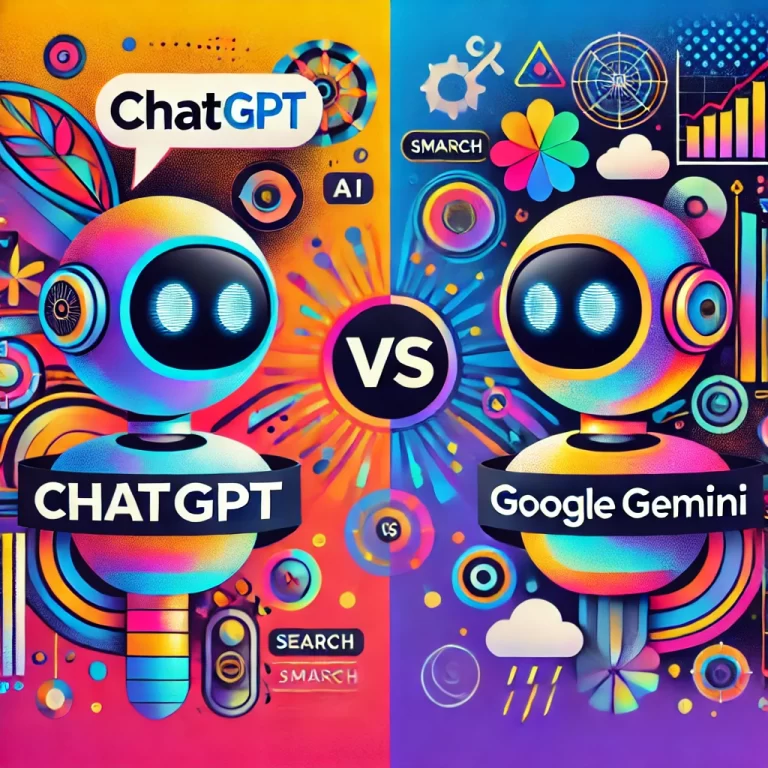ChatGPT Vs Google Gemini Vs Quality

Who will win the AI Quality War - ChatGPT Vs Google Gemini
A Comparative Analysis of ChatGPT and Gemini: How They Incorporate Quality Concepts in Their Functionality
In today’s digital landscape, artificial intelligence (AI) systems like ChatGPT by OpenAI and Gemini by Google’s DeepMind are revolutionizing how we interact with technology. Both platforms represent cutting-edge advancements in natural language processing (NLP), and they’re at the forefront of transforming industries by facilitating better communication, enhancing business processes, and improving user experiences.
In this blog post, we’ll dive deep into comparing ChatGPT and Gemini, focusing on how each integrates quality concepts in their design and functionality. This comparison will highlight the importance of quality management in AI, particularly in enhancing performance, user trust, and adaptability to various applications.
Understanding ChatGPT
ChatGPT is based on OpenAI’s Generative Pre-trained Transformer (GPT) architecture. It uses a deep learning model that has been trained on vast amounts of text data to generate human-like responses in conversational settings. ChatGPT’s functionality revolves around generating contextually relevant answers, understanding user prompts, and maintaining coherent dialogue, which makes it widely used in customer support, education, and content generation.
Key Features:
- Contextual Understanding: ChatGPT excels at following context over extended conversations, which enhances the quality of user interaction.
- Creativity in Responses: The model is not just limited to factual queries but also performs creative tasks like writing essays, poems, or solving abstract problems.
- User Feedback Integration: OpenAI incorporates feedback loops into ChatGPT to refine its performance continuously, a key tenet of quality assurance.
Quality Concept Integration in ChatGPT:
ChatGPT’s integration of quality is evident in multiple facets. OpenAI continuously refines its models through real-world user feedback, ensuring the model improves over time. This process mirrors Total Quality Management (TQM) principles where continuous feedback and iterative improvement are key drivers of success. Furthermore, OpenAI actively implements ethical considerations by ensuring that ChatGPT avoids harmful or inappropriate content—aligning with the concept of quality control in product delivery.
Understanding Gemini
Gemini is Google’s DeepMind-developed AI, designed to offer a similar NLP-focused experience but with a stronger focus on real-time analysis and broader AI applications. Gemini’s architecture is designed to excel in multi-modal interactions (combining text, image, and audio inputs) while maintaining quality and consistency across various channels.
Key Features:
- Real-Time Data Processing: Unlike static models, Gemini can handle real-time data inputs, making it highly adaptable to dynamic environments like financial markets and automated customer service.
- Multimodal Capabilities: Gemini’s ability to integrate different types of data (text, images, videos) enhances the quality of its output, as it can provide more holistic solutions.
- Advanced Ethical Guardrails: Much like ChatGPT, Gemini also incorporates significant safety protocols to avoid harmful outputs, enhancing its reliability in sensitive applications.
Quality Concept Integration in Gemini:
Gemini emphasizes process excellence by incorporating real-time data analysis and decision-making capabilities, aligning with lean methodologies that focus on efficiency without compromising quality. Additionally, its use of multimodal data inputs speaks to its commitment to comprehensive quality control, ensuring that output quality remains consistent across all forms of data interaction.
Quality Concepts in ChatGPT and Gemini: A Comparative Look
Both ChatGPT and Gemini excel at incorporating quality principles, but they do so in slightly different ways, given their unique architectures and use cases. Let’s break down the quality aspects they prioritize:
- Continuous Improvement (Kaizen):
– ChatGPT: The model’s design revolves around learning from user interactions. OpenAI releases updated versions after rigorous testing and feedback collection, ensuring that the model becomes better at understanding and responding to user queries over time.
– Gemini: Google’s DeepMind has a similar approach, but its focus on real-time data integration means that Gemini can adjust to feedback in real-time as well. This adds an additional layer of dynamic quality assurance, which is especially important for industries like finance or real-time customer support.
- Performance Excellence:
– ChatGPT: The performance metrics of ChatGPT are largely based on the relevance of its conversational responses. OpenAI uses both qualitative and quantitative measures (such as engagement rates) to ensure high-quality performance.
– Gemini: Performance excellence in Gemini is evaluated across multiple data channels. Its integration of text, images, and other forms of input requires stringent quality measures across different media, ensuring all forms of output meet the same high standards.
- User-Centered Quality:
– ChatGPT: OpenAI focuses heavily on enhancing user satisfaction by incorporating feedback into the development cycle. User-centric quality is maintained by refining the model to provide increasingly relevant and coherent responses.
– Gemini: DeepMind’s Gemini takes this a step further by offering multimodal capabilities, allowing it to interact in a richer, more immersive way with users. By focusing on multiple data types, Gemini enhances the overall user experience and caters to more diverse needs.
- Quality Assurance through Ethical Standards:
– ChatGPT: OpenAI places a significant emphasis on ensuring that ChatGPT adheres to ethical guidelines. This includes minimizing harmful or biased content, an important aspect of quality assurance.
– Gemini: Google’s approach to quality assurance in Gemini also includes robust ethical standards, with real-time checks ensuring that inappropriate content is flagged or avoided altogether.
How Quality Concepts Shape the Future of ChatGPT and Gemini – Looking to the future, both ChatGPT and Gemini will continue to evolve, and their incorporation of quality concepts will become even more critical as AI becomes more embedded in everyday life.
- Customization and Scalability: As businesses increasingly adopt AI for customer support, content generation, and operational efficiency, the ability to customize models like ChatGPT and Gemini for specific industries will become a major focus. Companies will seek tailored solutions that meet their unique quality requirements, whether it’s maintaining brand voice consistency or automating highly regulated processes. ChatGPT’s feedback loop mechanism and Gemini’s real-time adaptability are both well-positioned to scale across diverse industries without sacrificing quality.
- Advanced Predictive Capabilities: Quality in AI will also be defined by how well models can predict user needs and adapt accordingly. For example, in customer service applications, both ChatGPT and Gemini will likely become even more proactive in anticipating issues and solving them before they escalate, leading to a higher standard of customer satisfaction.
- Integrating Innovation for Process Excellence: Innovation will continue to play a major role in shaping the quality outputs of AI systems like ChatGPT and Gemini. As these technologies evolve, they’ll integrate with other innovations, such as the Internet of Things (IoT), blockchain, and augmented reality, to offer even more comprehensive solutions. The focus on process excellence—streamlining operations without sacrificing quality—will be key in these integrations.
Conclusion: Quality Concepts and AI Excellence – The future of AI lies not only in its ability to respond to users but also in how well it maintains **quality** in those responses across various platforms and contexts. Both **ChatGPT** and **Gemini** are prime examples of how AI models can incorporate quality concepts like continuous improvement, ethical assurance, and user-centered design to deliver high-performance outcomes.
At Brainow Consulting ( https://www.brainowconsulting.com ), we recognize the importance of integrating quality concepts into AI-driven processes. As businesses continue to explore the capabilities of AI technologies, we are here to guide them in leveraging platforms like ChatGPT and Gemini to enhance their operational excellence, innovation, and customer satisfaction. By focusing on quality, businesses can not only adopt AI but also trust that it will deliver superior, reliable results.

Syed Saif has over two decades of experience in Quality, Excellence, Innovation, Six Sigma, Lean, and Customer Services. He is a Certified Master Black Belt, ISO Lead Auditor, High Impact Trainer, Certified Business Excellence Assessor, Certified on Innovation Business Model Canvas, and holds a PG diploma in Customer Relationship Management. Syed Saif has trained thousands of people, from students to CEOs on various improvement methodologies and self help techniques, and has worked in various industries including BPO, Telecom, IT, Insurance, Manufacturing, and Healthcare. Prior to his full-time consulting role, he served as Vice President for a Leading Insurance Company and as National Head of Quality, Innovation, and Service for Corporate and Sales Functions. See our services page for more details on what we do and how can we help you / your organization.
Pingback: 15 Points- Why Data is the New OIL and Why Data Quality Matters - Brainow Consulting
Pingback: What is Yahoo Doing Now and Why Did It Fail? -